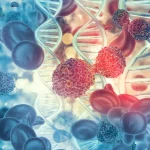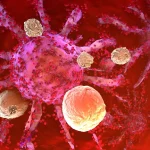Cutaneous and mucosal reactions
Chemotherapy and radiation can produce skin reactions of varying intensity, such as changes in the colour, texture or integrity of the skin and mucous membranes (e.g. inside the mouth, nose, etc.).
The most common side effects include dry skin, changes in colour, increased sensitivity to sunlight, ulcers and acne reactions.
Helpful hints
- Use only topical medication (cream or ointment) that is recommended or prescribed by the oncologist.
- Avoid soaps and scented products based or petroleum jelly or alcohol.
- Have showers or baths in lukewarm water with mild, non-perfumed soap.
- Dry the skin by dabbing (do not rub).
- Use a natural water-based moisturizing cream, without perfume or lanolin, only on intact skin.
- Avoid exposing the treated area to sun and cold.
- Use an SPF 30-60 sunscreen as needed, and follow the instructions for applying it.
- Wear loose clothing.
- Avoid rubbing, scratching or massaging irritated skin.
- Use an electric razor or do not shave the irritated area.
- Avoid waxes and depilatory creams.
- Avoid extreme temperatures (e.g. no ice packs or heating pads on the skin).
- Avoid applying adhesives to irritated skin.
- Use artificial tears, drops or gel in the event of dry eye or tearing.
- Apply a moisturizing gel inside the nostrils in the event of dry nose.
- Use a mild soap to wash clothes that come in direct contact with the skin.
- Avoid public pools.































